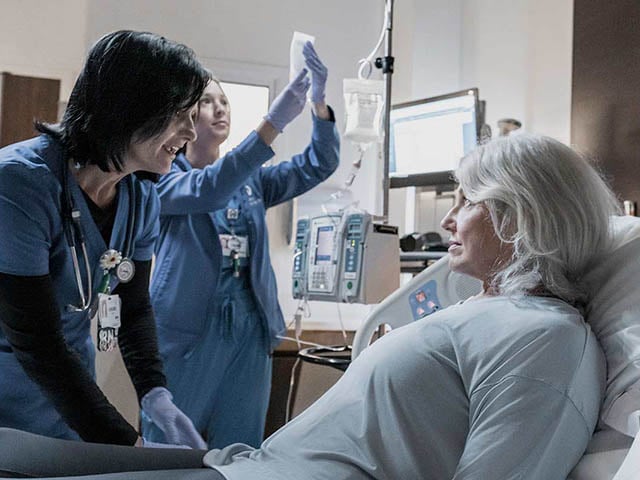Number One Risk Factor for Ovarian Cancer

It’s still unclear what causes ovarian cancer, but research suggests that the No. 1 risk factor is genetic mutation in breast cancer gene one (BRCA1) and breast cancer gene two (BRCA2). In fact, approximately 10% to 15% of ovarian cancer cases are caused by BRCA1 or BRCA2 mutations. While approximately 1.3% of all women develop ovarian cancer, the rate is significantly higher among women with inherited BRCA mutations (44% for those with inherited BRCA1 mutations and 17% for those with inherited BRCA2 mutations).
The BRCA1 and BRCA2 genes are responsible for helping to repair damaged DNA and a mutation can prevent them from doing so, sometimes leading to the development of cancer. In addition to ovarian cancer, BRCA1 and BRCA2 mutations can also increase the risk of developing breast cancer, melanoma, pancreatic cancer and prostate cancer.
BRCA1 and BRCA2 gene mutations can be inherited from either parent. However, rather than being present when a woman is first born, the mutation will often develop over the course of her life. Research also suggests that genetic mutations can result from exposure to radiation or certain chemicals. Notably, women of Eastern European or Ashkenazi Jewish descent tend to be at a higher risk for BRCA1 and BRCA2 mutations.
Other risk factors for ovarian cancer
As mentioned above, approximately 85% to 90% of ovarian cancer cases aren’t caused by BRCA1 or BRCA2 mutations. Other risk factors for ovarian cancer include:
- Age. Women 55 and older are more likely to develop ovarian cancer.
- Family history of ovarian cancer. Women who have at least two close relatives (for example, their mother, sister or daughter) with ovarian cancer have an increased chance of developing the condition.
- Personal history of breast cancer. A woman who has breast cancer has a higher risk of developing ovarian cancer, even if she doesn’t have BRCA1 or BRCA2 mutations.
- Early obesity. Women who were obese during their early childhood years have a greater risk of developing ovarian cancer.
- Duration of menstruation. Ovarian cancer is more common among women who began menstruating before the age of 12 and among those who started menopause after turning 55.
- Reproductive history. Women who have never been pregnant, those who have never taken oral contraceptives and those who gave birth for the first time after age 30 are all more likely to develop ovarian cancer.
- Hormone therapy. Undergoing estrogen hormone replacement therapy can increase the chance of developing ovarian cancer.
Place your trust in Moffitt
It’s important to remember that having any of these risk factors doesn’t necessarily mean that you’ll develop ovarian cancer. Many women with multiple risk factors never develop ovarian cancer, and some who have no known risk factors at all will still be diagnosed. However, if you’re concerned about your risk of developing ovarian cancer, you can turn to the professionals at Moffitt Cancer Center. The experts in our Center for Women’s Oncology have extensive experience diagnosing and treating ovarian cancer.
To learn more and speak with one of the skilled providers on our team, call 1-888-663-3488 or complete a new patient registration form online.

